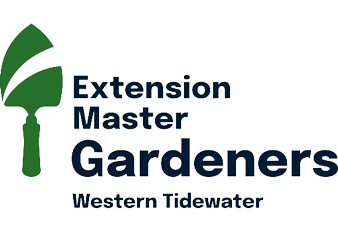About the Western Tidewater Extension Master Gardeners
The Western Tidewater Master Gardeners cover 3 Virginia Counties, Surry, Southampton, and Isle of Wight County and all the Cities within.
Our current activities (as shown on our homepage) are primarily located in the Smithfield and Carrolton areas. We would like to expand into other areas, but doing so takes a lot of volunteers.
Join the Western Tidewater Master Gardeners!
Becoming a Master Gardener is a fulfilling opportunity for those passionate about gardening and community service. It requires a commitment to learning, volunteering, and staying engaged with our programs.
If you’re ready to dedicate your time and talents to make a lasting impact, we’d love to hear from you! If not, we still value building relationships with advocates who share our vision and support our efforts.
Why Join the Extension Master Gardeners Now?
There’s no better time to start your journey as a Master Gardener than today, and here’s why:
Maximize Your Lifelong Impact – The sooner you begin learning sustainable gardening techniques, the more years you’ll have to apply that knowledge and make a positive difference in your life, your garden, and your community.
Tap Into a Wealth of Expertise – Joining now connects you earlier with a network of passionate Master Gardeners, each with unique specialties and wisdom to share. The sooner you engage, the more time you’ll have to learn, grow, and benefit from their expertise.
Don’t wait to start cultivating both knowledge and connections—join us today and watch your skills, garden, and community thrive!
What WTMG Applicants should expect?
Embarking on the journey to become a Western Tidewater Master Gardener is both exciting and structured. Here’s what you can expect after submitting your application:
Application Confirmation: Upon submission, your application is acknowledged, and you are placed in a pool of potential students.
Training Schedule: Annually, two months before training commences, we provide candidates with a tentative schedule outlining approximately 50 hours of training sessions. Given the significant time commitment, we ask that you review the schedule and confirm your availability to participate fully.
Enrollment Fee: Once you’ve committed to the training schedule, a $150 fee is required to cover essential materials and administrative costs. More specifically it includes:
State program fees
A required Background investigation
An electronic copy of the Extension Master Gardener Handbook
- Pre-Class Requirements: All necessary forms, payments, and prerequisites must be completed at least two weeks before the first class to ensure a smooth start.
Note: Most classes will be Instructor led by a variety of volunteer horticultural experts or Extension Master Gardeners. On ocassions classes may be held and/or offered via zoom and may include external content.
If you have additional questions, please contact us using the button which will take you to a form.
What is an Extension Master Intern?
After completing the initial training, new Master Gardener interns are required to complete a 50-hour internship within one year. During this period, interns apply their knowledge by participating in approved projects, often under the guidance of experienced Master Gardeners. This hands-on experience is crucial for reinforcing learning and contributing to community education efforts.
The internship is a vital component of the Master Gardener program, providing practical experience and fostering community engagement. It allows interns to develop their skills, gain confidence, and make meaningful contributions to public horticultural education.
What is an Extension Master Gardener?
An Extension Master Gardener (EMG) is a trained volunteer educator who, after receiving specialized training in environmental horticulture through the Virginia Cooperative Extension (VCE), serves their community by providing research-based information on sustainable landscape management. This includes areas such as turf and soil fertility management, vegetable and ornamental gardening, tree and shrub care, stormwater control, and insect and plant disease management.
The EMG program, initiated in 1973 in Washington state, has expanded nationwide, with volunteers delivering science-based horticultural knowledge to the public.
In Virginia, EMGs are integral to the VCE’s mission, acting as local resources who offer advice, education, and resources to gardeners of all levels.
